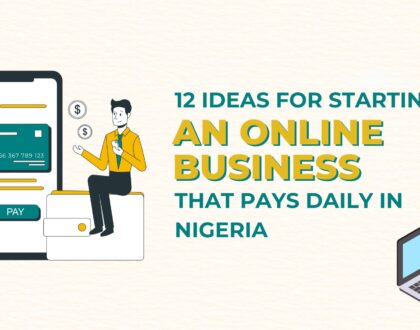The Pros, Cons, and Best Practices of Building a Remote Business

In a swiftly changing world, conventional business models are shifting to accommodate entrepreneurs building remote businesses. One notable transformation is the surge of remote entrepreneurship.
Remote entrepreneurship is simply building a business without physically getting involved. Online businesses own the lion’s share in this business model as more and more people are becoming entrepreneurial and setting up businesses.
However, despite this new business model’s appeal, there are major drawbacks which we will cover in this article. It begs the question: How can entrepreneurs utilise the benefits of remote entrepreneurship while skillfully manoeuvring its possible obstacles?
Let’s start with the pros of building a remote business.
Pros of Remote Business:
It saves costs
Top of the list is cost!
It’s a no-brainer: Building a remote business can save money by eliminating significant expenses associated with operating physical locations, such as rent, utilities, infrastructure, and maintenance.
The remote business model significantly impacts financial health, allowing you to invest in crucial product development and marketing areas.
Geographical flexibility in hiring, reduced commuting costs, and efficient scaling further enhance the benefits. Moreover, remote work aligns with sustainability goals, decreasing energy consumption and carbon emissions.
Ultimately, remote entrepreneurship offers a unique chance to cut overhead costs, allocate resources wisely, and build a financially resilient business adaptable to change.
You gain access to a talent pool
When you start a remote business, the world is your talent pool. You are not limited to geographical or political borders and can hire anyone from anywhere worldwide if they have the required skills.
A diverse global workforce brings unique skills, experiences and niche expertise to your team. This can significantly improve innovation, collaboration, problem-solving, and operations.
Flexibility
Do you love to work your own hours?
Yeah, you would enjoy a lot of that when you’re building a remote business. Without the confinement of a physical office, you can customise your work hours, reduce commuting stress, prioritise health and well-being, balance work and family commitments and have a global reach.
While not all bed of roses, this approach can redefine work dynamics, leading to balanced lives, improved well-being, and job satisfaction.
It increases productivity
It’s statistically proven that working in your preferred environment boosts motivation, focus, and efficiency, leading to better outcomes.
Being able to work wherever and whenever you want, is exciting. It can strengthen work ethic, reduce stress, enhance creativity, and elevate satisfaction.
Consistency, reliability, and adaptability to change further contribute to business success. Entrepreneurs prioritising preferred work environments harness these advantages, driving innovation and job satisfaction and propelling their businesses to succeed.
It can’t be all good, though. So here are the cons of building a remote business.
Cons of Remote Business
Communication can be challenging
Remote entrepreneurs rely on digital communication tools, which could lead to misinterpretation, delayed responses, and a lack of face-to-face interactions. We can effectively tackle these challenges by comprehending the possible drawbacks and implementing mitigation measures.
These include video calls for cues, clear guidelines, varied communication tools, openness, scheduled catch-ups, cultural awareness, emojis for context, and social interaction promotion. Balancing digital tools with in-person mimicry fosters effective remote collaboration.
It can be isolating
Building a remote business is stressful. It can lead to emotional strain, creative deficit, and amplified isolation. When you’re building alone as a solopreneur, the odds amplify further.
Overcoming these challenges requires deliberate efforts to maintain connections, promote openness, and recognise psychological challenges.
Strategies to address these issues include:
- Encouraging informal virtual chats.
- Scheduled check-ins.
- Video calls.
- Virtual team-building.
- Open conversations.
- Reinforcing team goals.
- Creating non-work chat spaces.
- Mentorship.
- Acknowledging achievements.
- Organising wellness workshops.
The stress with time zone differences
Time zone is a big one. It can be frustrating working with employers or co-founders halfway across the world.
Time zone disparities and scheduling, communication, interrupted workflows, and meeting fatigue take their toll on you.
Strategies to enhance cross-time zone collaboration include time zone awareness, tools, flexible scheduling, asynchronous communication, effective communication, centralised documentation, designated overlap, transparent calendars, a global mindset, and empowering local autonomy.
A strategic approach can overcome these challenges and leverage time zone diversity for international success.
Security and privacy risks:
How secure is your online business? Yep, we’re going there.
When building a business over the internet, you face genuine cybersecurity risks. Protecting sensitive data and finances is crucial. Challenges include data vulnerabilities, unsecured networks, phishing attacks, and more.
Strategies to enhance security:
- Educate employees about cybersecurity.
- Use VPNs for secure network access.
- Ensure devices have updated security tools.
- Encrypt data at rest and in transit.
- Establish remote work policies.
- Regularly update software.
- Use safe collaboration tools.
- Have an incident response plan.
- Monitor and audit network activity.
- Provide employee support.
- Regularly backup critical data.
In today’s remote work environment, it is crucial to take proactive cybersecurity measures to protect sensitive information and maintain a secure remote workspace.
Lack of control
Sometimes, it might look like you’re losing control of the business, teams and operations.
The absence of physical oversight, potential communication barriers, and the need for a cultural shift can lead to concerns about accountability, collaboration, and maintaining performance standards. To counter these challenges:
- Set clear expectations for performance and goals.
- Establish effective communication routines and channels.
- Utilise collaboration tools to monitor progress and tasks.
- Focus on outcomes and results rather than micromanaging tasks.
- Trust and empower your remote team members.
- Provide regular feedback and recognition.
- Invest in building relationships through virtual interactions.
- Adapt your leadership style to suit remote dynamics.
- Monitor performance through relevant metrics and KPIs.
By implementing these strategies, entrepreneurs can maintain control, nurture a productive remote team, and successfully navigate the landscape of remote businesses.
So, what are the best practices to successfully build a business remotely?
There is no easy way to build a business. It’s hard.
But to build a successful remote business, establish guidelines for communication and clearly define business goals and individual responsibilities. Then, implement a comprehensive operational process covering all the countries your business operates.
Since you’re building an online business, investing in cybersecurity solutions is important.
To up your management game, implement transparent methods for performance evaluation, schedule regular staff meetings, encourage clear boundaries between work and personal life, embrace technology, work on building a solid company culture, and be prepared to adapt based on feedback.
Stay tuned to this page for more business nuggets like this, and watch out for our business education, financing and mentor-matching platforms launching soon.
We’ve also built a community of entrepreneurs who are either turning their passions into businesses or already building their empires. Click here on our waitlist to know when we will launch this.
Recommended Posts

How to Grow Your Local Business Using Google My Business App
January 20, 2025

12 Ideas For Starting An Online Business That Pays Daily In Nigeria
October 31, 2024

5 Reasons To Avoid Using GB Instagram To Promote Your Business
October 17, 2024
